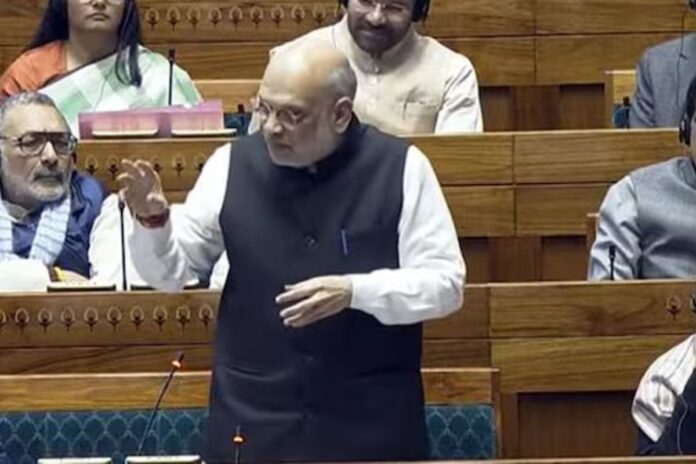The One Nation, One Election Bill was tabled in the Lok Sabha on Tuesday, December 17, amid strong opposition protests, further intensifying political divisions between the ruling BJP-led coalition and the INDIA bloc. Union Home Minister Amit Shah addressed the uproar, announcing that Prime Minister Narendra Modi had recommended the bill be referred to a Joint Parliamentary Committee (JPC) for broader consultations.
“When the One Nation One Election bills came up in Cabinet, PM Modi said this should be referred to the Joint Committee of Parliament. There should be a detailed discussion over it at every level,” said Amit Shah in his address to the Lok Sabha.
The session began with Union Law Minister Arjun Ram Meghwal tabling the Constitution (One Hundred and Twenty-Ninth Amendment) Bill, 2024 and the Union Territories Law (Amendment) Bill, 2024, both aimed at facilitating simultaneous elections for the Lok Sabha and state assemblies. Despite the chaos, the bills were introduced successfully, receiving 269 votes in favor and 198 against.
Opposition Outcry
The tabling of the bills was met with sharp resistance from opposition leaders, who criticized the proposed reforms for undermining the Constitution’s federal structure. Congress MP Manish Tewari expressed strong objections, stating, “This challenges the basic structure of the Constitution.”
Samajwadi Party MP Dharmendra Yadav, representing Akhilesh Yadav’s party, accused the BJP government of seeking to impose a “dictatorship” through the bill. “This will end the diversity of India and erode its federal structure,” Yadav argued.
The opposition protests were vociferous, with leaders like Supriya Sule of the NCP (Sharad Pawar faction), Trinamool’s Kalyan Banerjee, and DMK’s TR Baalu also leading the charge. As tempers flared, Law Minister Arjun Ram Meghwal defended the bill, dismissing the opposition’s concerns as politically motivated. “Objections to the One Nation One Election bill are political in nature,” Meghwal remarked, further fueling the heated debate.
Political Divide Intensifies
The One Nation, One Election initiative has emerged as a major point of contention between the ruling BJP and opposition parties. The BJP and its allies have firmly supported the legislation, emphasizing its potential to streamline governance and reduce election-related costs. However, opposition parties, including the Congress, Samajwadi Party, and Shiv Sena (UBT), have outrightly rejected the proposal.
Among the 47 political parties that have taken a stand, 32 have backed the bill, while 15 have opposed it. Notably, fence-sitting parties like Jagan Mohan Reddy’s YSR Congress Party (YSRCP) have lent their support, further tilting the numbers in the government’s favor.
The BJP’s allies argue that holding simultaneous elections would ensure stability, reduce frequent disruptions to policy implementation, and lower financial and administrative burdens. However, opposition leaders contend that the move centralizes power and weakens the voice of regional parties, which are vital in India’s diverse political landscape.
Broader Implications and Next Steps
The bill’s referral to a Joint Parliamentary Committee signals the government’s willingness to engage in deeper deliberations, a step likely aimed at addressing opposition concerns and gaining broader consensus. Analysts believe the move also underscores PM Modi’s strategic positioning to frame the legislation as a reform focused on national interest rather than political gain.
The concept of One Nation, One Election envisions simultaneous polls for the Lok Sabha and state assemblies, aiming to synchronize India’s electoral calendar. While proponents argue that this reform would enhance governance efficiency, critics warn of its potential to undermine federalism and diminish regional autonomy.
As the debate escalates, the JPC will now scrutinize the bills in detail, providing an opportunity for all stakeholders to express their views. The outcome of these consultations could determine the bill’s future and shape the political discourse leading up to the next general elections.
For now, the One Nation, One Election initiative remains a polarizing issue, with the government steadfast in its push for reform and the opposition resolute in its objections.

